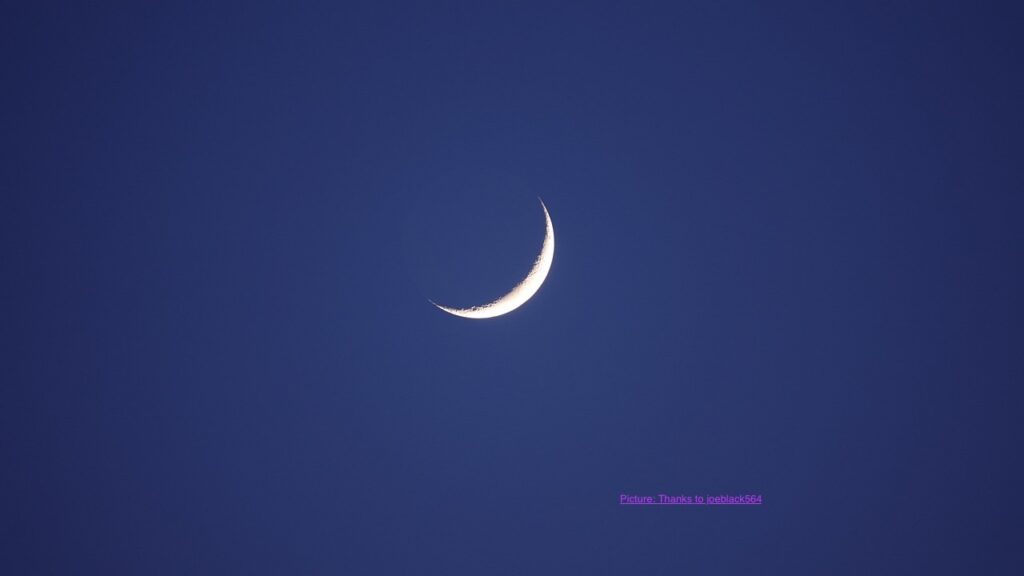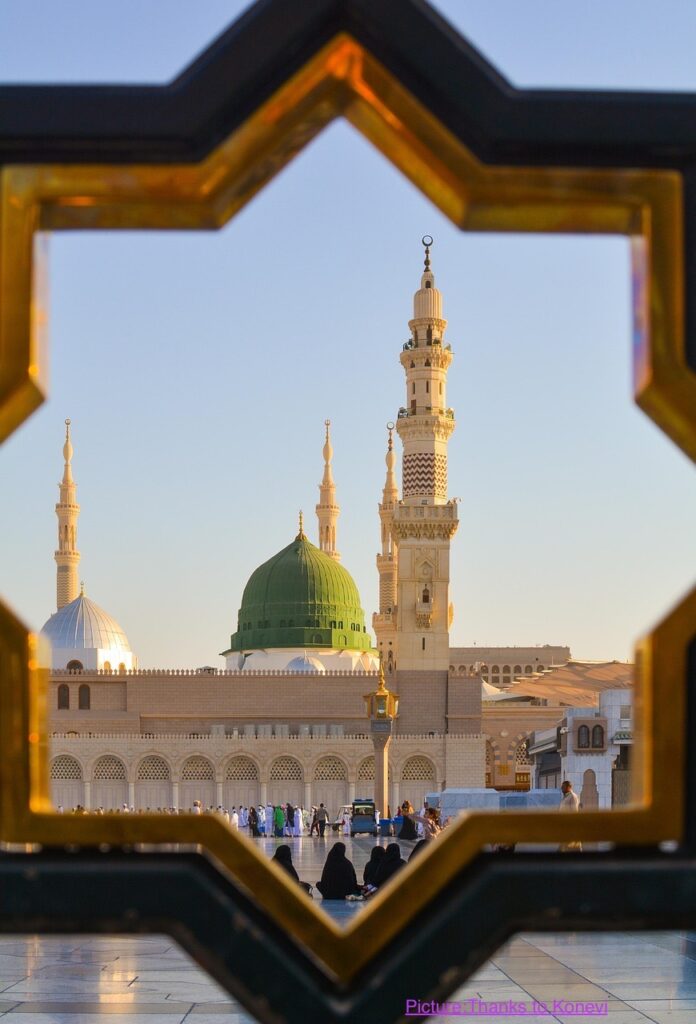
Eid Milad-un-Nabi (PBUH)2025 | Understanding Its Historical Significance and Contemporary Relevance
Journey into the heart of Eid Milad-un-Nabi (PBUH)2025, the birth anniversary of Prophet Muhammad (PBUH). Discover its deep historical roots, the profound spiritual reasons for its observance, and the beautiful tapestry of cultural practices that unite Muslims in love and reflection each year.
A Day of Light and Love on Eid Milad-un-Nabi (PBUH) 2025
On the 12th day of Rabi’ al-awwal, Every year, as the moon of Rabi ul Awal illuminates the night sky, Muslims around the world experience a unique joy. This month marks the arrival of Eid Milad-un-Nabi (PBUH)2025, the celebration of the birth of God’s final Messenger, Prophet Muhammad (Peace Be With Him). It’s more than just a date on the calendar; it’s a powerful, collective celebration of his life, teachings, and legacy.
While the manifestations of this love differ—from peaceful spiritual gatherings to vibrant street processions—the essence is universal. It’s a time for prayer, deep reflection, and acts of generosity to strengthen the global Ummah. This article invites you to explore the heart of this celebration: where it began, why it is so meaningful to millions, and how it continues to illuminate the modern world.
Table of Contents
Tracing Footsteps: A Rich Historical Tapestry
| Time Period | Development | Significant Features |
| 8th-10th Century | Early Commemorations | Private gatherings focusing on poetry and remembrance |
| 10th-12th Century | Fatimid Era | Official processions and court-sponsored events |
| 12th Century | Public Festivals | First public celebration in Erbil by Gökböri |
| 16th Century | Ottoman Institutionalization | Declared official holiday as “Mevlid Kandil” |
| Modern Era | Global Observance | Combination of religious and cultural practices worldwide |
It’s fascinating to learn how this celebration came to be a part of Muslim hearts. While the Prophet Muhammad (PBUH) never celebrated his birthday, generations of followers were naturally inspired to commemorate his birth.

Historical Origins and Evolution of the Celebration
According to historical accounts, the Fatimid dynasty of Egypt (10th-12th centuries) was the first to introduce formal, state-sponsored observances, such as processions and religious gatherings. However, a beautiful story from the 12th century serves as the true catalyst for its widespread popularity. Gökböri, a Muslim general and Saladin’s deputy, organized the first large-scale public festival in Erbil (modern-day Iraq). His heartfelt devotion set a precedent for community celebration, which spread throughout the Muslim world.
Centuries later, the Ottoman Empire adopted this custom, officially declaring it a public holiday in 1588 under Sultan Murad III, who called it “Mevlid Kandil.” What began as intimate gatherings of poetry and remembrance (Na’at) has grown into a rich tradition that includes charitable acts, community feasts, and public expressions of faith, seamlessly blending religious devotion with local culture.
The Purpose of the Celebration Eid Milad-un-Nabi (PBUH) 2025: A Matter of Heart
For those who celebrate, Eid Milad-un-Nabi is more than just a ritual; it is an expression of love and gratitude. Although there are differing scholarly perspectives on its observance, its proponents find profound spiritual justification.
Qur’an itself emphasizes
ts core message is to remember Allah’s greatest blessing. The Quran itself directs believers to “remind them of the days of Allah” (Surah Ibrahim, 14:5). What day is more important than the one that brought “mercy to the worlds” (Surah Al-Anbiya, 21:107)?
Express their love and devotion
This celebration is also a powerful manifestation of love (Muhabbat) for the Prophet. The Quran beautifully connects love for Allah and following the Messenger. “Say, [O Muhammad], ‘If you should love Allah, then follow me, [so] Allah will love you and forgive you your sins'” (3:31). The gathering to honor him is a natural result of that love.
Recitation of Darood and Salam

Furthermore, these gatherings are essentially a grand act of obeying Allah’s command to send blessings upon His Prophet (PBUH), as outlined in Surah Al-Ahzab (33:56). Finally, the Milad serves as a powerful catalyst for spiritual renewal and education, providing an opportunity to reconnect with the Prophet’s exemplary character and reorient our lives around Islamic principles.
More Than a Festival: The Spiritual and Community Soul.
Milad-un-Nabi’s significance extends beyond the spiritual to the most practical aspects of community life, serving a variety of profound purposes:
A Beacon of Spiritual Light:
Now is the time to remember the light that the Prophet (PBUH) brought into a world shrouded in ignorance. Celebrating Mawlid is an expression of gratitude for divine guidance, as well as a personal inspiration to embody his compassion, justice, and mercy.
The Living Classroom: In a world full of distractions, Mawlid offers a valuable opportunity for religious education. Scholars and storytellers describe the Prophet’s life, making his struggles, patience, and wisdom understandable to both young and old, ensuring that his teachings are passed down through generations.
Weaving the Community Fabric:
The celebration serves as an excellent unifier. It brings together people from all walks of life—rich and poor, young and old—and bridges social divides. The shared rituals, collective prayers, and communal meals reinforce the beautiful bonds of brotherhood and solidarity.
A Call to Charity: Inspired by the Prophet’s unparalleled example of generosity, Muslims put their joy for this day into action. Central themes include food distribution, assistance to the needy, and contributions to community welfare, transforming love into tangible compassion.
The celebration is a vibrant display of cultural diversity, with illuminated mosques and green banners in South Asia and special foods and traditional hymns in Southeast Asia. It demonstrates how a common love for the Prophet is expressed through a stunning mosaic of local traditions.
A Tapestry of Cultural Expression:
The celebration is a vibrant display of cultural diversity, with illuminated mosques and green banners in South Asia and special foods and traditional hymns in Southeast Asia. It demonstrates how a common love for the Prophet is expressed through a stunning mosaic of local traditions.
How the World Celebrates: A Global Mosaic Today.
Today, Eid Milad-un-Nabi (PBUH) 2025 is celebrated in a stunning display of unity and diversity. It is a national holiday in many Muslim-majority countries, though the date may vary slightly depending on the moon sighting.
Community Cohesion:
In Pakistan, India, and Bangladesh, the day frequently begins with ceremonial gun salutes. Cities transform into seas of light and green, with massive, peaceful processions carrying hymns and prayers through the streets.
Across the Middle East in countries such as Egypt and Jordan, the tone is often more contemplative, with emphasis on religious lectures, Quranic recitations, and charitable initiatives.
Southeast Asia countries such as Malaysia and Indonesia incorporate local customs into their celebrations, resulting in a distinct blend of devotion and culture, complete with special foods and community activities.
In the West, Muslim diaspora communities use this occasion to hold interfaith dialogues and educational conferences, allowing them to share the Prophet’s message with their neighbors.
Despite these lovely variations, the core remains constant: remembering the Prophet, bestowing blessings on him, giving charity, and cultivating community.
Table: Regional Variations in Eid Milad-un-Nabi (PBUH) 2025 Observance
| Region | Date of Observation | Distinctive Practices |
| South Asia (Pakistan, India, Bangladesh) | 12th Rabi’ al-awwal | Large processions, illuminated mosques and streets |
| Middle East (Egypt, Jordan) | 12th Rabi’ al-awwal | Religious lectures, Quran competitions, charity |
| Southeast Asia (Malaysia, Indonesia) | 12th Rabi’ al-awwal | Cultural performances, special foods, community gatherings |
| Western Countries | 12th Rabi’ al-awwal | Educational events, interfaith dialogues, conferences |
| Shia Communities | 17th Rabi’ al-awwal | Focus on Ahl al-Bayt, special prayers and gatherings |
#Eid Milad-un-Nabi, #Prophet Muhammad (PBUH)
Conclusion:
Eid Milad-un-Nabi (PBUH) 2025 is more than just a historical remembrance; it is a living, breathing tradition that continues to influence the lives of millions. For its followers, it is an annual homecoming of the heart—an opportunity to reaffirm their love, strengthen their community, and recommit to the highest ethical and spiritual standards taught by the Prophet Muhammad (PBUH).
This celebration, from its humble beginnings hundreds of years ago to its current global expressions, demonstrates the Prophet’s legacy’s enduring power. Mawlid’s main messages of love, unity, peace, and justice shine brighter than ever in a world that frequently seems divided. We should live by the message of the Messenger and make the world a better place that shows the mercy for which he was sent.
Frequently Asked Questions (FAQ) About Eid Milad-un-Nabi
Q1: On what date is Eid Milad-un-Nabi (PBUH) celebrated?
A: The Islamic holiday of Eid Milad-un-Nabi (PBUH) 2025 takes place on the 12th day of the month of Rabi’ al-awwal. The Gregorian calendar changes the date every year because the Islamic calendar is based on the moon. In 2025, for example, many countries, like Pakistan, India, and Bangladesh, will celebrate it on September 6. Other countries may start their parties a day or two earlier, depending on when they can see the moon.
Q2: Why is there a difference of opinion among Muslims about celebrating the Eid Milad-un-Nabi (PBUH) 2025?
A: This is a very important point to talk about in theology. The difference comes from how people understand religious behavior.
People who celebrate see it as a good new idea (bid’ah hasanah) that shows love for the Prophet (PBUH), inspires good deeds, and comes from the general idea in the Quran to remember Allah’s gifts.
Some people who don’t celebrate say that it’s a new religious practice (bid’ah) that the Prophet Muhammad (PBUH) or his closest friends didn’t do, so it should be avoided.
It is important to know that this difference is a question of interpretation, and that honest Muslims and scholars hold both points of view.
Q3: When did the real Eid Milad-un-Nabi (PBUH) 2025 celebration start?
A: Muslims have loved the Prophet (PBUH) for a very long time, but it wasn’t until many years later that his birthday became an official event. Based on what we know from history,
In Fatimid Egypt (10th–12th century), the first official celebrations were held.
Erbil in the 12th century: General Gökböri planned a big public festival that set the standard for celebrations for the whole community.
In the Ottoman Empire (1588), the event was made a legal public holiday and named “Mevlid Kandil.”
Q4: What is the core spiritual reason for celebrating?
A: There are spiritual reasons behind them as well as political and cultural ones:
Thankfulness: To show Allah how much we appreciate him sending Prophet Muhammad (PBUH) as “a mercy to the worlds.”
Love: To tell the Prophet how much you love him and to refresh that love every week.
Follow through: To do what the Quran says and send blessings upon him (Darood and Salam).
Education: To learn about his good character and life (Seerah) so that they can better follow what he taught
Q5: How do celebrations differ around the world?
A:Eid Milad-un-Nabi (PBUH) 2025 is beautiful because it is so different, just like the Muslim people around the world:
South Asia (Pakistan, India, and Bangladesh): Known for big, colorful processions, illuminations, and putting green flags and lights up in the streets and churches.
Middle East (Egypt, Jordan): Usually focuses on religion talks, Quran recitation contests, and doing good things for others in a calmer setting.
Southeast Asia (Malaysia, Indonesia): traditional foods, community meetings, and religious hymns are all part of this religion that combines local culture with religion.
In Western countries, Muslim communities often hold educational conferences, dialogues between different faiths, and cultural shows to spread the word of the Prophet.
Q6: Is giving to charity a part of the party?
A: Of course. Giving to others (Sadaqah) is an important and highly recommended thing to do during Mawlid. Giving food to the poor, helping neighborhood projects, and distributing food are all examples of this. This is a straight way to show love through action, just like the Prophet (PBUH) did with his famous kindness and generosity.
Q7: What are some customs that most people keep at home?
A: A lot of families celebrate the holiday by
People getting together to sing and read verse that praises the Prophet (Na’at).
Hearing stories about his life, the miracles he did, and the kind person he was.
Making special meals for family, friends, and neighbors and sharing them with them.
Sending blessings to him (Salawat) both separately and as a group.
Putting lights or green decorations in their homes to make them look better.
Q8: I’m not Muslim; how can I respectfully acknowledge this day to my Muslim friends or colleagues?
A: A simple thank you that shows respect is always welcome. You could say, “I know you might be celebrating a holy day this week.” I hope you have a peaceful Eid Mlk-un-Nabi. This shows that you understand and value their traditions. Another great way to learn and build relationships is to ask honest, thoughtful questions about what the day means.
Q9: Did Prophet Muhammad (PBUH) celebrate his own birthday?
A: No, according to historical records and Islamic sources, Prophet Muhammad (PBUH) did not celebrate his own birthday.
